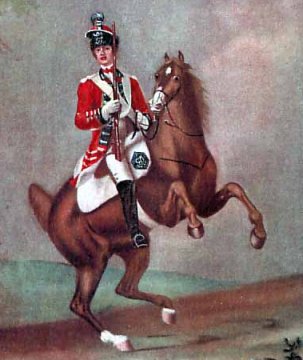Wonder Woman v. 4 no. 7
Brian Azzarello and Cliff Chiang
Ever since I moved from being a comic book fan to a comic book fan on the Internet, I've been aware of a substantial body of opinion out there that either simply doesn't like, or at best is deeply ambivalent about, superheroes. These people find the dominance of the industry by DC and Marvel, and by the dominance of superheroes in the books they publish, something to regret. They point to the European and Japanese industries and their rosters of non-superhero titles.
You can sort of see their point. If they want to develop the field with non-superhero books more power to them.
On the other hand, their tastes are not mine. I've tried to read the books they recommend. I usually end up putting them down, dismayed by the trowelled-on darkity-darkness, or by oblique, vague, and inconclusive storytelling. I've tried to read the books they recommend, and watched Element Girl tormented to death. I've learned not to trust their recommendations.
And human social dynamics get in the way. Differences in taste have a tendency to turn into tribal totems. It becomes not enough to prefer other books to superhero books; the superheroes are dismissed, say, as "juvenile power fantasies," and their fans are dismissed for simplistic tastes. If this is a bad thing then I am guilty of it. I view superhero books as a classical art form: the higher form of creativity comes from working within the restraints set by the classical forms, rather than disregarding them.
Problems arise when a writer influenced by this belief system tries to write a superhero title. They will come to the task with the idée fixe that superheroes are simplistic, lightweight entertainment, and think it's their mission to "fix" them somehow. They want to add moral depth, ambivalence, and complexity, even if this isn't what the readers came for. Superhero comics are not a good fit to complex, greyscale moralities or pithering about the indeterminacy of narrative. When you try to smoosh that stuff into them, the result is usually unreadable.
Then you come to the Wonder Woman title itself, where historically the largest problem is that every new writer that comes along the pipe tries to "fix" the title with a Bold New Direction, and as such the character had no firm supporting cast, consistent body of lore, or well developed rogue's gallery. Few of the writers have been able to step up to the plate and embrace a character who is simultaneously an Amazon warrior and a magical princess; this is a complicated and interesting character, but definitely challenging to write, a whole lot harder than a generic Vengeful Woman and Last Daughter of Themiscyra. There does seem to have been a perverse and consistent will, from the Rucka run if not before, to darken the character and turn her into a tragic figure.
Vertigo is a problem. From the foundation, the Vertigo imprint was supposed to be for creators who were, in Karen Berger’s words, “different, smarter, and edgier” than the makers of mainstream comics. In other words, we’re so much cleverer, hipper, and more sophisticated than the trogs who wrote all those four-color stories about stalwart patriotic superheroes.
When you have an entire imprint dedicated to this mentality, my impression is there’s always been a mood of scorn and condescension towards classic characters. My earliest diststeful Vertigo memories all revolved around the mistreatment of Silver Age characters in Vertigo books. I’ve learned to view the entire line with suspicion; if it isn’t soaked in violence or adolescent darkity-darkness, it will feature oblique and inconclusive storytelling.
So when Vertigo writers end up on DC universe titles, the containment field is breached. To accept the Vertigo mindset is to believe that traditional superheroes are simplistic and silly. They need complexity. (And in that view of things, this means, “it’s gotta be dark.")
Of course they’ll be flinging poo at an American icon. It’s how they show they’re more sophisticated than the people who created them.






